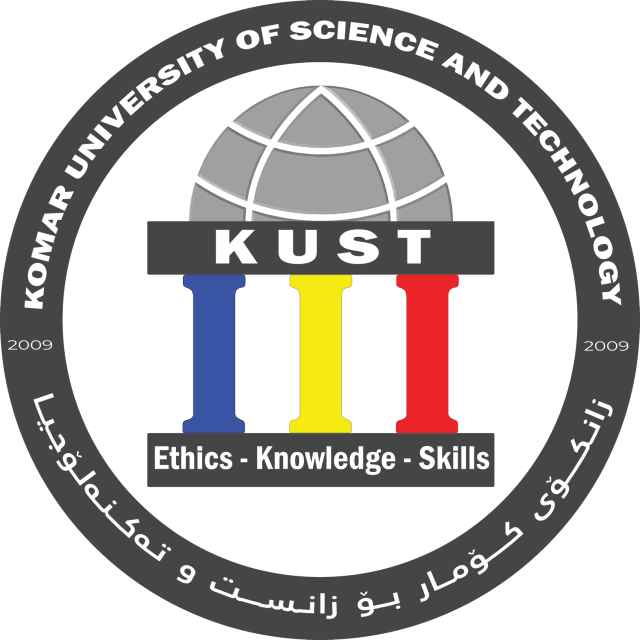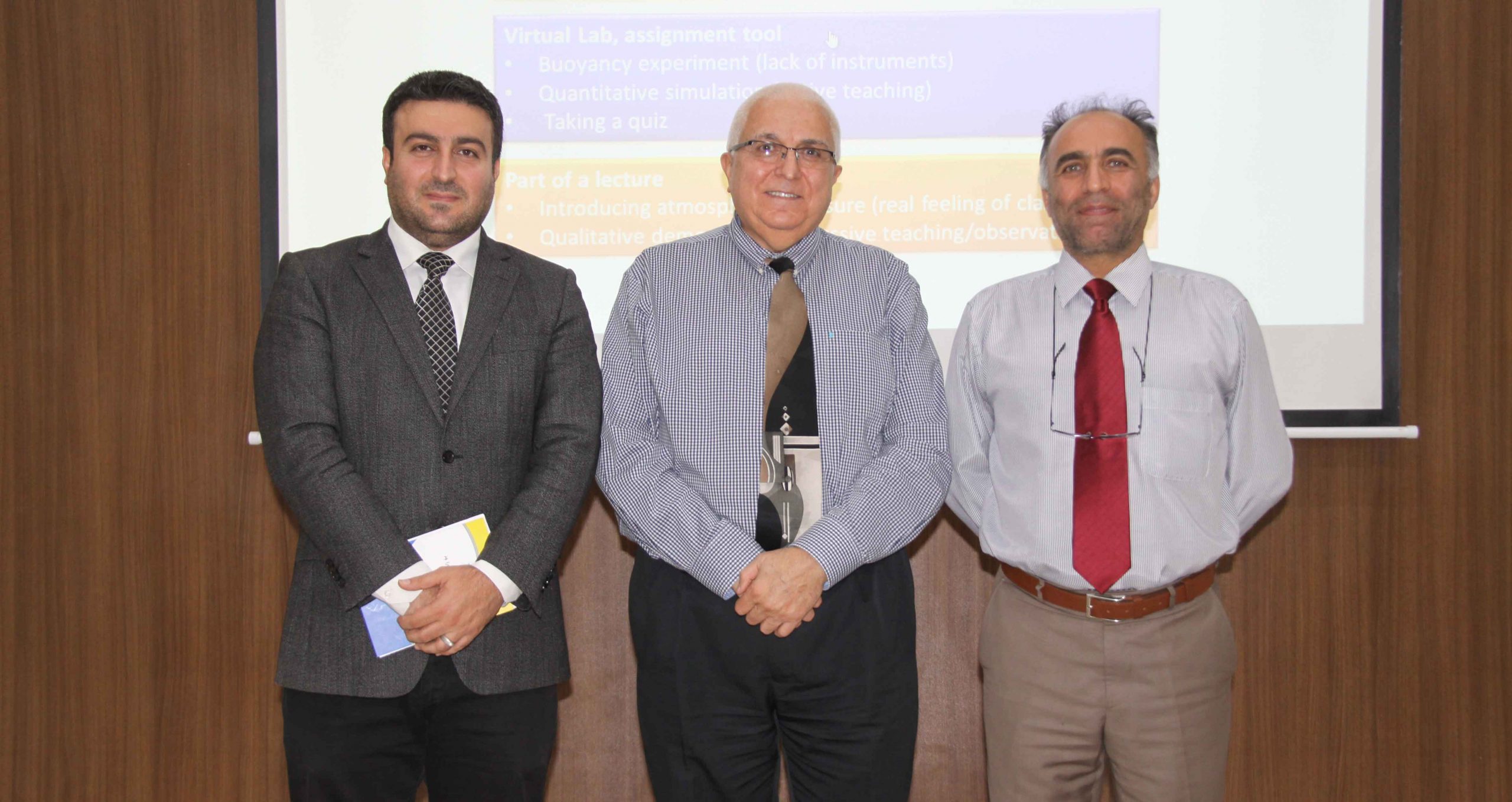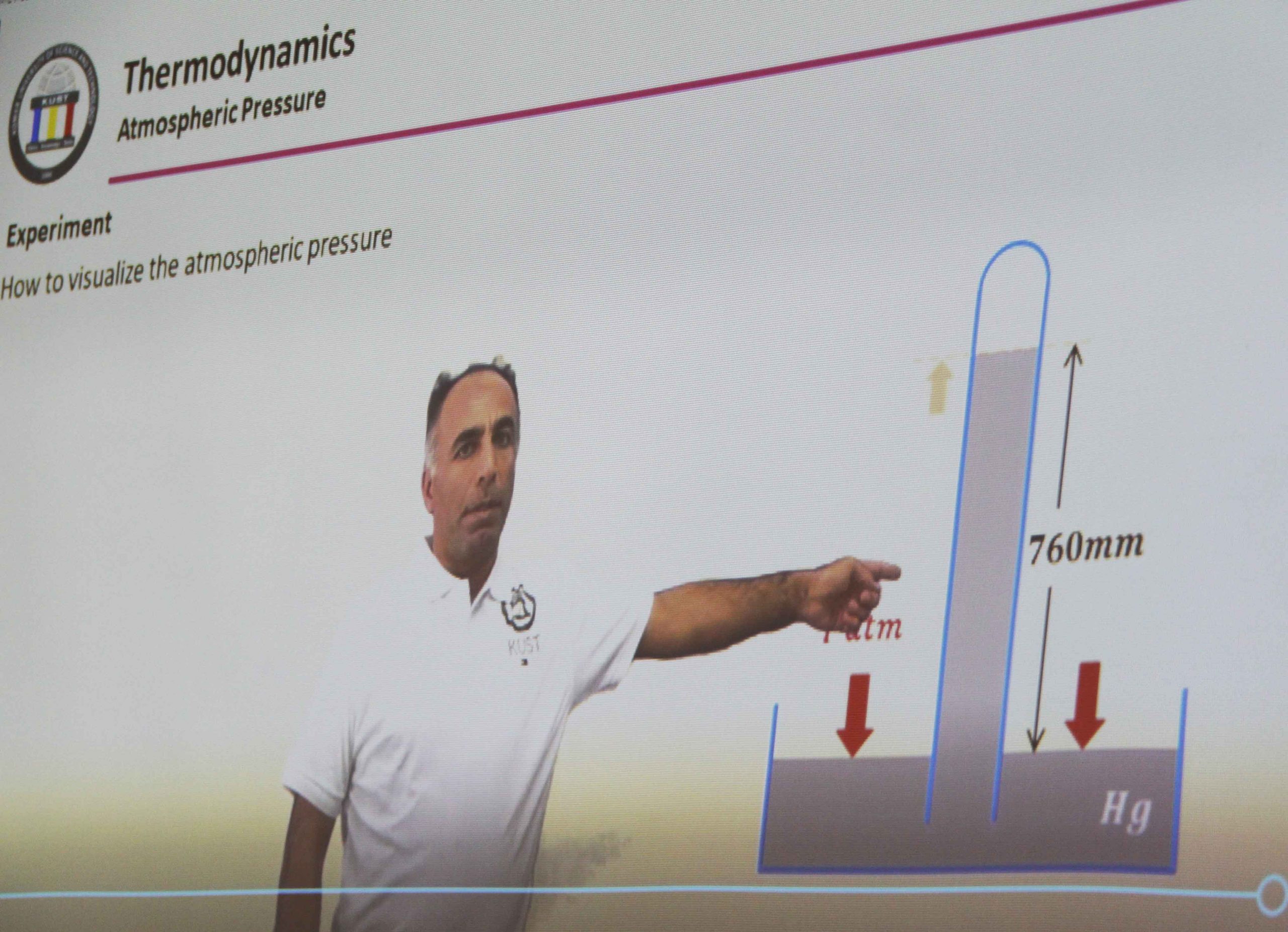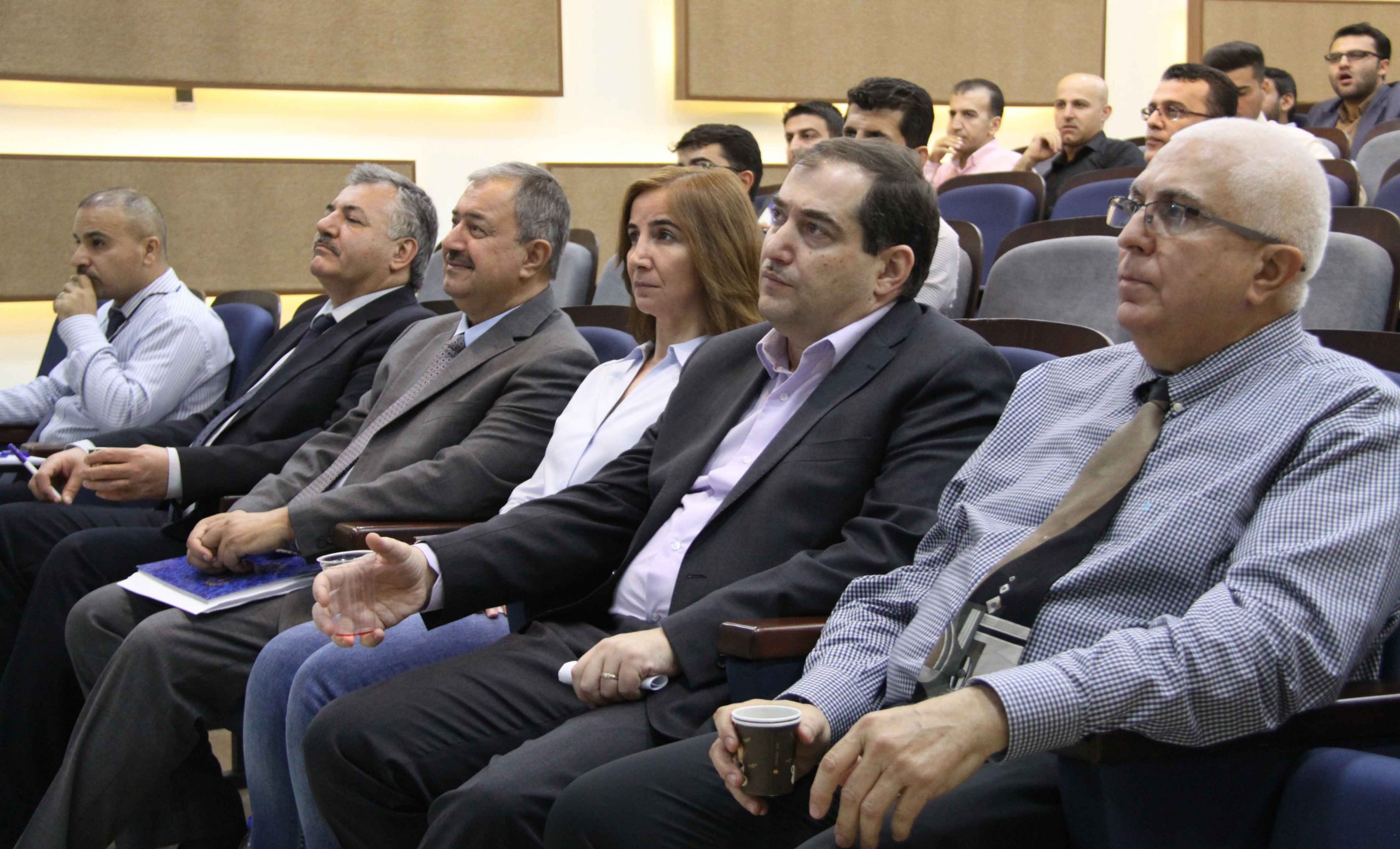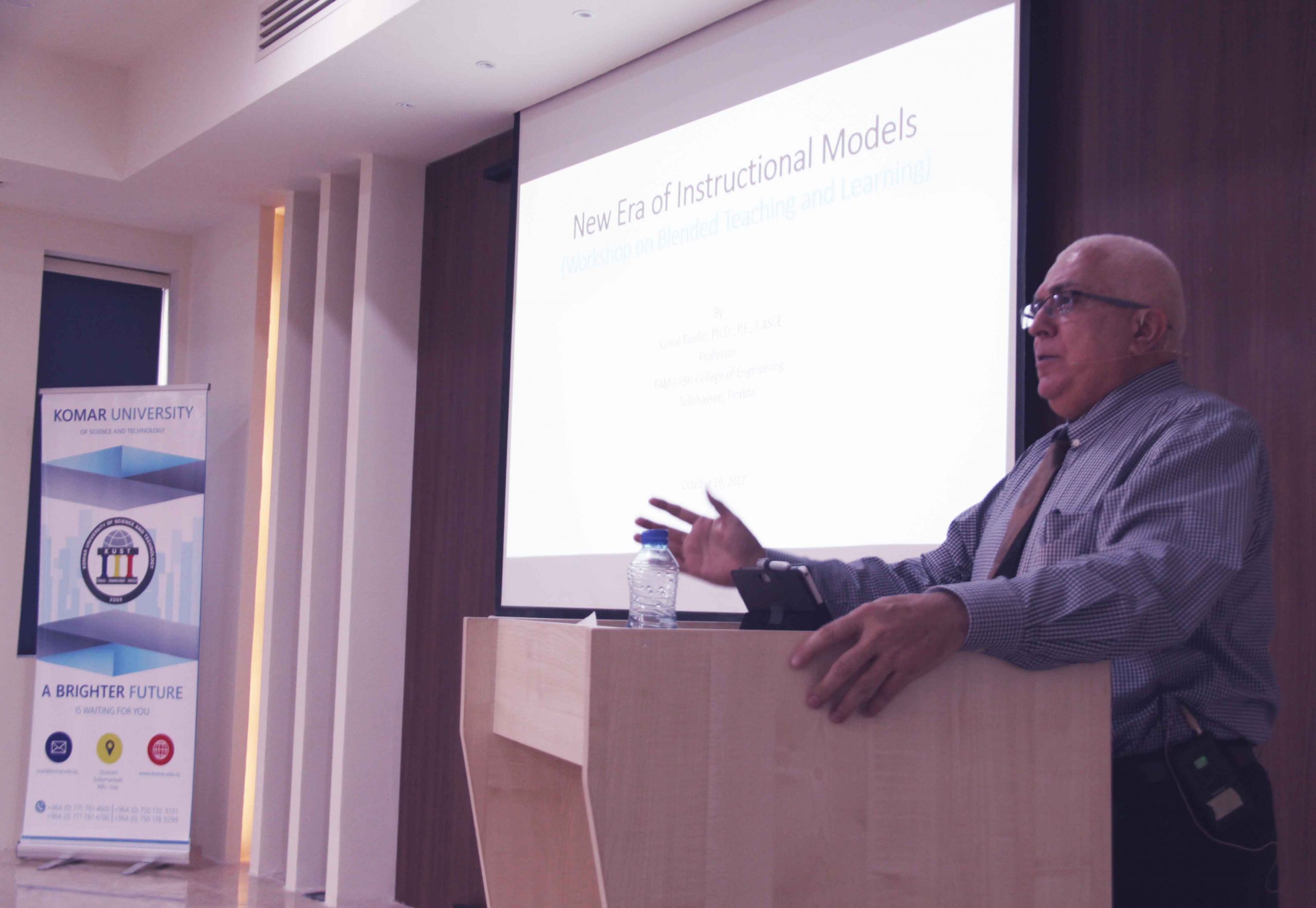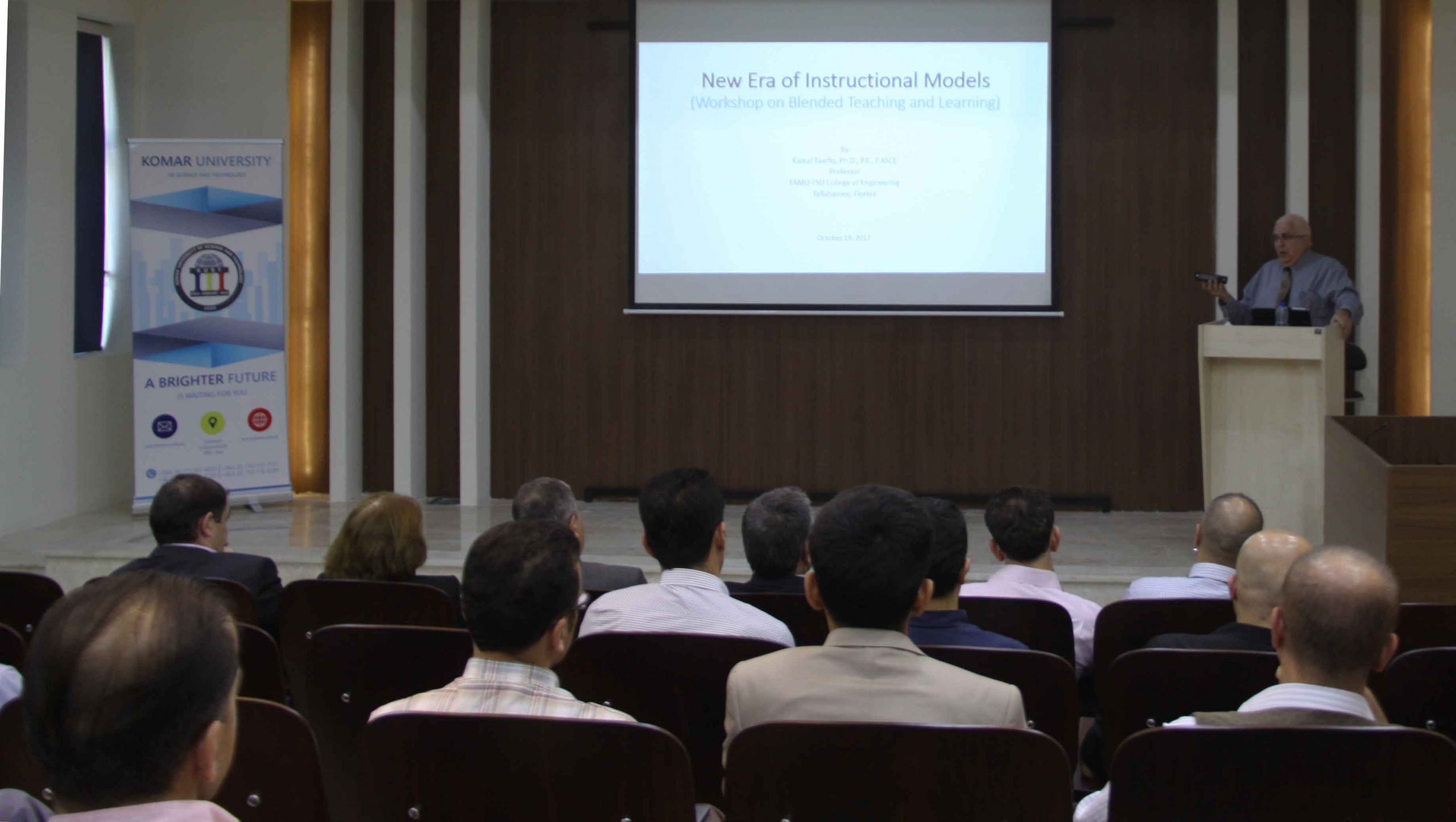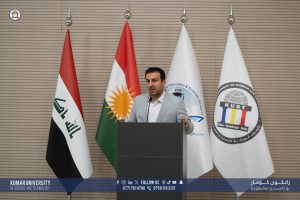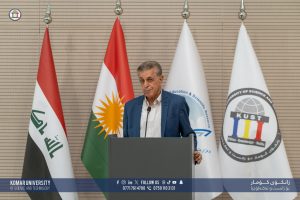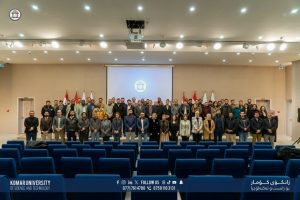KUST Conducted New Era of Instructional Models: Blended Teaching and Learning Workshop
On October 19th, 2017, Dr. Kamal Tawfiq, Professor and Chair in Florida A&M University-Florida State University arranged a workshop on “New Era of Instructional Models: Blended Teaching and Learning.” At the beginning of the workshop, Dr. Tawfiq focused on the importance of adapting our teaching methods inside and outside the classrooms to catch up with the advancements in hardware and software technologies. Nowadays students are using smart devices to communicate, share knowledge with others, watch lectures posted in the cyberspace, and even to replace the traditional hard copy text book by a digital copy. Blended teaching and learning by combining the traditional in-class teaching with archived lectures, problem solving, and laboratory procedures can be used to enhance student learning and student outcomes. To demonstrate different techniques of hybrid teach, Dr. Hamid Zadeh, a Petroleum Engineering faculty member at Komar University showed how he converted some of his lectures from Instructor-Led Teaching to blended lectures where he can post them on the internet to deliver more knowledge and skills to the students while they are off campus.
The purposes of the workshop were:
1. To explain the importance of “Flexible Learning” (“flexible” anyone can enroll in undergraduate and post-graduate programs at anytime from anywhere)
2. To relief crowded laboratories, and to minimize the need to split lab sessions (Developing more virtual laboratory methods i.e. Virtual Reality – Augmented Reality)
3. To provide ways and means to develop more flexible FTE to engineering faculty (In the era of more research and publishing and university ranking)
4. To overcome the frequent budget shortage to hire more faculty and acquire expensive laboratories
5. To enhance students learning outcomes and to enhance their learning as a matter of urgency to be able to address persistent global challenges and competitiveness.
This workshop was a part of series workshops that will be conducted according to the Quality Assurance Calendar during fall 2017.
